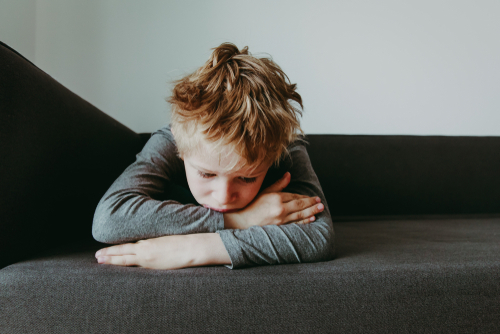Symptoms To Look For In Grieving Boys

Grief and loss are a natural part of life. Boys in the first few years of recovery from addiction might find the experience of grief distinctly challenging after a loss. These symptoms are signs that your boy might be struggling to cope with loss and get through the process of grief. At Stonewater Adolescent Recovery Center, we're committed to helping teens overcome their challenges with adolescent mental health treatment.
- Anger: Anger in adolescent or teenage boys isn't uncommon. Boys in recovery are learning how to manage their anger and make healthy choices about it. In the event of a loss and during times of grief, anger can be the way many other difficult emotions manifest. Look for placing blame on other people or the self, generally angry moods, or an increased tendency toward typical anger behaviors.
- Cravings: Treatment and recovery teach boys how to be resilient in the face of adversity, without turning to drugs and alcohol as a coping mechanism. Especially during the early phases of recovery, the programming from addiction is still thriving. Feeling strained in their ability to cope with loss, boys might develop cravings for relief by way of their substance of choice. Look for statements like What's the point? or other justification-makings for substance usage.
- Isolation: Some boys may push themselves to be in the presence of others during a time of grieving after loss. Other boys may act more withdrawn and isolate themselves from friends or family. Isolation can be a threat to sobriety. Though it is important to give boys the emotional space they need to grieve in the way they need to grieve, it is also important to keep an eye out for isolation behaviors.
- Irritability: Adolescents or teenagers and irritability can seemingly go hand in hand. Boys who have completed treatment have gained tools for expressing when they are in an irritable mood, as well as tools for coping with that mood. After experiencing loss, boys might be more irritable than normal, being highly reactive to everyone.
- Guilt: Of course, boys are very unlikely to directly have anything to do with the loss of a friend or a family member. That doesn't mean, however, boys aren't prone to rumination or obsessive thinking about the loss they have experienced. Boys who are in recovery from addiction live within a very peculiar community. It is likely that a young man in recovery will experience the loss of a friend to relapse and/or overdose. For boys who remain sober, there is a sort of survivor's guilt why some boys make it and others don't.
Grief and loss are part of what we call living life on life's terms. In treatment, boys gain the skills and healing needed to live life on all of it's terms, free from the desire for self-destructive behaviors. Stonewater Adolescent Recovery Center welcomes adolescent and teenage boys for long term residential treatment programs with academic support. Built by family, for family, together, we can heal. Call us today for information: 662-598-4214

.jpg)

